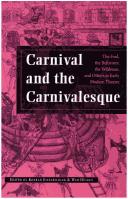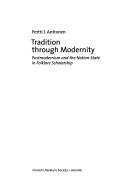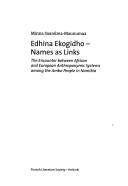| Listing 1 - 10 of 197 | << page >> |
Sort by
|
Book
ISBN: 908062134X Year: 2003 Publisher: Utrecht Projectbureau Belvedere
Abstract | Keywords | Export | Availability | Bookmark
 Loading...
Loading...Choose an application
- Reference Manager
- EndNote
- RefWorks (Direct export to RefWorks)
Book
ISBN: 8871786173 Publisher: Padova CLEUP
Abstract | Keywords | Export | Availability | Bookmark
 Loading...
Loading...Choose an application
- Reference Manager
- EndNote
- RefWorks (Direct export to RefWorks)
Book
ISBN: 0904818438 Year: 2000 Publisher: London Museum of London
Abstract | Keywords | Export | Availability | Bookmark
 Loading...
Loading...Choose an application
- Reference Manager
- EndNote
- RefWorks (Direct export to RefWorks)

ISBN: 0674399781 Year: 1990 Publisher: Cambridge (Mass.) Belknap press of Harvard university press
Abstract | Keywords | Export | Availability | Bookmark
 Loading...
Loading...Choose an application
- Reference Manager
- EndNote
- RefWorks (Direct export to RefWorks)

Abstract | Keywords | Export | Availability | Bookmark
 Loading...
Loading...Choose an application
- Reference Manager
- EndNote
- RefWorks (Direct export to RefWorks)
Book
ISBN: 907038969X Year: 2002 Publisher: Amsterdam Meertens instituut
Abstract | Keywords | Export | Availability | Bookmark
 Loading...
Loading...Choose an application
- Reference Manager
- EndNote
- RefWorks (Direct export to RefWorks)
Book
Year: 2005 Publisher: Brussel : Minerva,
Abstract | Keywords | Export | Availability | Bookmark
 Loading...
Loading...Choose an application
- Reference Manager
- EndNote
- RefWorks (Direct export to RefWorks)
Book
Abstract | Keywords | Export | Availability | Bookmark
 Loading...
Loading...Choose an application
- Reference Manager
- EndNote
- RefWorks (Direct export to RefWorks)
Flandre --- Molens --- Moulins --- Vlaanderen --- #VCV monografie 2001

ISBN: 951746665X 9522228141 952222815X 9789522228147 9789522228154 Year: 2005 Publisher: Helsinki : Finnish Literature Society / SKS,
Abstract | Keywords | Export | Availability | Bookmark
 Loading...
Loading...Choose an application
- Reference Manager
- EndNote
- RefWorks (Direct export to RefWorks)
"In their study of social practices deemed traditional, scholars tend to use the concept and idea of tradition as an element of meaning in the practices under investigation. But just whose meaning is it? Is it a meaning generated by those who study tradition or those whose traditions are being studied? In both cases, particular criteria for traditionality are employed, whether these are explicated or not. Individuals and groups will no doubt continue to uphold their traditional practices or refer to their practices as traditional. While they are in no way obliged to explicate in analytical terms their criteria for traditionality, the same cannot be said for those who make the study of traditions their profession. In scholarly analysis, traditions need to be explained instead of used as explanations for apparent repetitions and replications or symbolic linking in social practice, values, history, and heritage politics. This book takes a closer look at 'tradition' and 'folklore' in order to conceptualize them within discourses on modernity and modernism. The first section discusses 'modern' and 'traditional' as modern concepts and the study of folklore as a modern trajectory. The underlying tenet here is that non-modernity cannot be represented without modern mediation, which therefore makes the representations of non-modernity epistemologically modern. The second section focuses on the nation-state of Finland and the nationalistic use of folk traditions in the discursive production of Finnish modernity and its Others. The insights are applicable worldwide in discussions on cultural representation."
#VCV monografie 2005 ruil --- Folklore --- Scandinavians --- Ethnology

ISBN: 9517465297 9522228168 Year: 2003 Publisher: Helsinki Finnish Literature Society / SKS
Abstract | Keywords | Export | Availability | Bookmark
 Loading...
Loading...Choose an application
- Reference Manager
- EndNote
- RefWorks (Direct export to RefWorks)
"What are the most popular names of the Ambo people in Namibia? Why do so many Ambos have Finnish first names? What do the African names of these people mean? Why is the namesake so important in Ambo culture? How did the long independence struggle affect personal naming, and what are the latest name-giving trends in Namibia?This study analyses the changes in the personal naming system of the Ambo people in Namibia over the last 120 years, starting from the year 1883 when the first Ambos received biblical and European names at baptism. The central factors in this process were the German and South African colonisation and European missionary work on the one hand, and the rise of African nationalism on the other hand. Eventually, this clash between African and European naming practices led to a new and dynamic naming system which includes elements of both African and European origin.Dr. Minna Saarelma-Maunumaa is the Publishing Director of the Finnish Evangelical Lutheran Mission and the Vice-President of the Finnish-Namibian Society.""Within the field of onomastics, i.e. the scientific study of names, this study is a remarkable and extremely important one... I suspect that it will become a major and standard reference work in the future, not only regarding Ambo anthroponymy, but anthroponymy in general, particularly where cultures interact."" —Professor S.J. Neethling, University of the Western Cape, South Africa"
#VCV monografie 2003 --- Historical & comparative linguistics
| Listing 1 - 10 of 197 | << page >> |
Sort by
|

 Search
Search Feedback
Feedback About
About Help
Help News
News